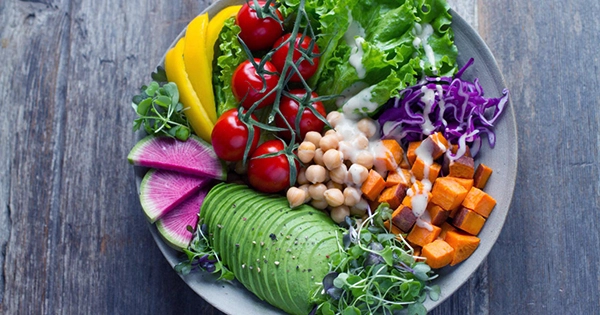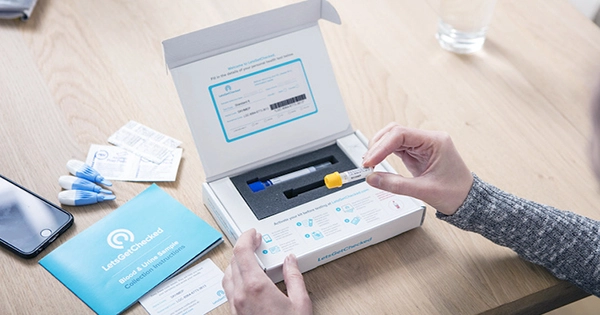Over time, vegan diets have grown in popularity, especially among those trying to get healthier. Indeed, a growing body of research demonstrates the numerous health advantages of plant-based diets, including vegan diets, which have also been related to a lower risk of heart disease, as well as lower body weight and cholesterol levels.
However, some people are going all out with their veganism and solely eating raw or otherwise uncooked plant foods. Some people also don’t eat things that have been treated or modified from their natural state (such as oat or almond milk). This diet’s proponents contend that boiling strips foods of some of their vital nutrients and enzymes. They think that eating raw plant foods can increase energy levels, prevent (and even reverse) disease, and enhance general health.
However, research indicates that long-term adherence to raw vegan diets may do more harm than good. This is why:
You might omit crucial nutrients: Some raw foods may be healthier than cooked meals, according to research. For instance, heating can reduce the amount of thiamine in brussels sprouts and red cabbage by up to 22%. This kind of vitamin B1 supports the health of the neurological system.
While certain veggies may lose nutrients when they are cooked, others retain more nutrients. This is due to the fact that some nutrients are trapped within the vegetable cell walls. Cooking causes the cell walls to dissolve, releasing nutrients for easier absorption by the body.
For instance, cooking spinach makes it easier for the body to assimilate the calcium it contains. Additionally, studies have shown that when cooking tomatoes boost their lycopene level by more than 50% while decreasing their vitamin C content by 28%. Lower risk of a number of chronic diseases, such as cancer, heart disease, and cardiovascular disease, has been linked to lycopene. Other veggies that become more nutrient-dense when cooked include asparagus, mushrooms, carrots, broccoli, kale, and cauliflower.
Vegetables that have been cooked can also give the body additional antioxidants. These are compounds that can combat free radicals, a class of dangerous molecules that can injure cells and eventually cause disease. When cooked, some vegetables, such as tomatoes, spinach, asparagus, mushrooms, and broccoli, have higher concentrations of the antioxidants beta-carotene, lutein, and lycopene than when they are raw. The body converts beta-carotene into vitamin A.
Deficits in vitamins and minerals are likely: Numerous essential vitamins and minerals, such as the vitamins B12 and D, selenium, zinc, iron, and two different forms of omega-3 fatty acids, are likely to be absent from raw vegan diets. This is so since a lot of the foods, like meat and eggs, that are high in these vitamins and minerals also come from animals. These vitamins all contribute significantly to immune system health as well as the formation, growth, and structure of brain and nerve cells.
The amounts of vitamin B12 are of special relevance. 38% of participants in a study on people who strictly consumed raw foods were found to be vitamin B12 deficient. Given that a lack of vitamin B12 is linked to a number of issues, including jaundice, mouth ulcers, eyesight issues, depression, and other mood disorders, this is problematic.
The same study also discovered that a rigorous, raw vegan diet raised homocysteine levels due of a B12 deficit, which is an amino acid that is broken down by vitamin B12. This is concerning since elevated homocysteine levels may raise the risk of heart disease and stroke.
May lead to loss of periods: If your raw vegan diet isn’t properly planned, you can lose weight unintentionally if you don’t get the number of calories your body requires to function. Young ladies should be particularly concerned about this.
According to research, 30% of women under 45 who consumed just raw foods for more than three years experienced partial to full amenorrhea (absence of menstruation). This is probably due to the weight reduction that the raw vegan diet causes. Numerous problems, including as infertility, decreased bone mineral density, and osteoporosis, can be brought on by amenorrhea. According to other studies, young women who consume 22–24% fewer calories than they need are more likely to experience impaired reproductive function.
The raw vegan diet may go too far and come with even greater risks if not carefully followed, even if eating a plant-based diet can offer many health benefits. It’s crucial to carefully plan your raw vegan diet to make sure you are getting all the nutrients you need for optimum health in the right amounts. In addition, I wouldn’t advise sticking with it for an extended period of time due to the numerous risks it may carry.
Source: https://medicalxpress.com/news/2022-11-raw-vegan-diet-healthhere.html
















